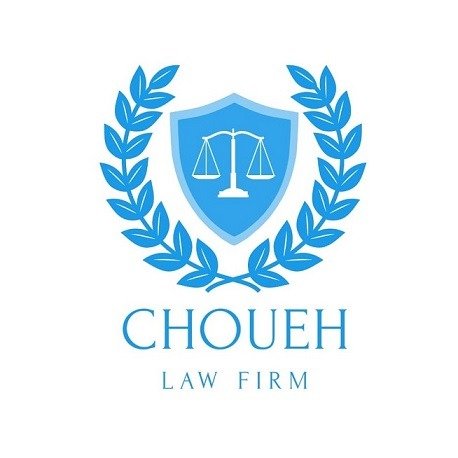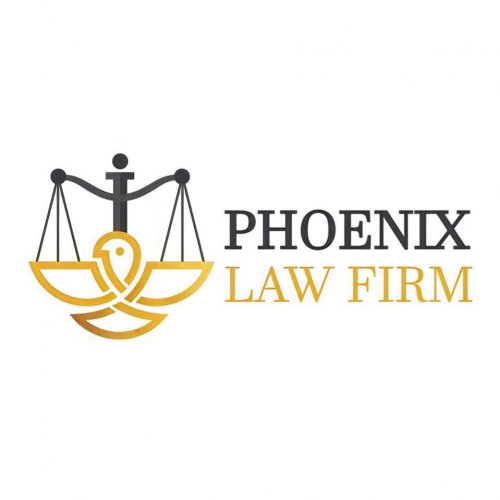Best Restructuring & Insolvency Lawyers in Beirut
Share your needs with us, get contacted by law firms.
Free. Takes 2 min.
List of the best lawyers in Beirut, Lebanon
About Restructuring & Insolvency Law in Beirut, Lebanon
Restructuring and insolvency law in Beirut, Lebanon addresses the legal processes that help struggling businesses and individuals manage financial distress. These laws are designed to facilitate the reorganization of debts, protect creditors’ rights, and help businesses continue operations where possible. Lebanon’s legal framework incorporates aspects of both restructuring (to help businesses avoid liquidation) and insolvency (for orderly asset distribution when financial recovery is not viable). The environment in Beirut is shaped by both modern legal reforms and historical commercial practices, aiming to create a balanced approach that benefits debtors and creditors alike.
Why You May Need a Lawyer
Navigating restructuring and insolvency is complex and often requires expert legal guidance. You might need a lawyer in these situations:
- Your business is experiencing severe cash flow problems or cannot meet its financial obligations.
- You are facing persistent creditor pressure or lawsuits related to unpaid debts.
- You want to explore restructuring options to avoid bankruptcy and keep your business operating.
- You are considering or have received an offer to purchase a distressed asset or business.
- You are a creditor seeking to protect your rights in an insolvency proceeding.
- You need advice on how new insolvency regulations might impact your rights and obligations.
- You are unsure about personal liability for business debts or guarantees.
In such circumstances, a Beirut-based lawyer specializing in restructuring and insolvency law can help you navigate the legal system, protect your interests, and pursue the best possible outcome.
Local Laws Overview
Lebanon’s approach to restructuring and insolvency has undergone significant developments in recent years. Key aspects of local laws relevant to Beirut include:
- Preventive Composition: Businesses facing financial difficulties can seek court-supervised preventive composition to restructure debts while maintaining operation.
- Judicial Liquidation: If recovery is not possible, the courts can supervise liquidation of assets, aiming for fair distribution among creditors.
- Order of Priority: The law establishes a ranking of creditors for repayment, favoring secured creditors and employees in certain cases.
- Creditor Involvement: Creditors are given a structured role in voting on restructuring proposals and monitoring proceedings.
- Cross-Border Insolvency: Lebanon addresses some aspects of international cooperation, but cross-border processes can be complicated and require special attention.
- Recent Reforms: Significant changes, including a draft modern insolvency law, aim to align Lebanon with international standards and provide better debtor protections and streamlined rescue processes.
The application of these laws in Beirut’s courts often depends on the specifics of each case, making early legal consultation highly advisable.
Frequently Asked Questions
What is the difference between restructuring and insolvency?
Restructuring refers to legal processes that help debtors reorganize their debts to improve financial health and avoid insolvency. Insolvency occurs when a debtor is unable to pay debts as they come due, often leading to legal proceedings for asset distribution or liquidation.
Who can initiate restructuring or insolvency proceedings in Beirut?
Debtors, creditors, or in certain cases, state authorities can initiate proceedings. Businesses often voluntarily seek restructuring, while creditors may trigger insolvency proceedings if debts remain unpaid.
What protections does the law offer during restructuring?
During court-sanctioned restructuring, legal actions by individual creditors may be suspended to provide breathing space for negotiations and develop a plan for repayment.
Are personal assets at risk for business debts?
In most cases, shareholders in limited liability companies are not personally liable for business debts. However, personal guarantees, misconduct, or fraud can expose private assets.
Does Lebanon recognize cross-border insolvency cases?
Lebanon has limited provisions for cross-border insolvency cooperation. International aspects are often handled on a case-by-case basis, so specialized legal advice is crucial.
What is the priority of debts in an insolvency?
Secured creditors, such as those holding collateral, are generally paid first. Wages and certain employee entitlements may also have priority, followed by unsecured creditors.
What is preventive composition and how does it work?
Preventive composition is a legal mechanism allowing debtors to negotiate with creditors under court supervision to agree on restructured payments, aiming to rescue rather than liquidate the business.
Can individuals seek restructuring, or is it only for companies?
While the laws primarily address businesses, individual merchants and professionals may access certain restructuring solutions, depending on their commercial status.
What happens if a restructuring plan fails?
If restructuring does not succeed, insolvency and liquidation proceedings may commence. The debtor’s assets will be assessed and distributed according to legal priorities.
How long does the insolvency or restructuring process take in Beirut?
Timelines vary based on case complexity and court workload. Some preventive compositions may resolve in months, while liquidations can take several years, especially in complex or contentious cases.
Additional Resources
If you need further information or assistance with restructuring and insolvency matters in Beirut, consider reaching out to these local resources:
- Ministry of Justice - Oversees judicial processes, including commercial courts.
- Beirut Bar Association - Provides lawyer directories and legal information.
- Chamber of Commerce, Industry, and Agriculture of Beirut and Mount Lebanon - Offers resources for businesses facing financial distress.
- Central Bank of Lebanon - Issues regulations impacting debt repayment and banking relationships.
- Lebanon Commercial Courts - Handle restructuring, composition, and insolvency proceedings.
Consulting with a qualified lawyer is strongly advised, as these bodies usually do not provide direct legal representation.
Next Steps
If you are facing financial difficulties or need advice regarding restructuring or insolvency in Beirut, start by gathering all relevant financial documents and information. Schedule a consultation with a Beirut-based lawyer who specializes in restructuring and insolvency law. An experienced legal professional will review your unique circumstances, explain your options, and help develop a strategic plan tailored to your situation. Acting promptly can increase the likelihood of preserving value and achieving a favorable outcome.
Lawzana helps you find the best lawyers and law firms in Beirut through a curated and pre-screened list of qualified legal professionals. Our platform offers rankings and detailed profiles of attorneys and law firms, allowing you to compare based on practice areas, including Restructuring & Insolvency, experience, and client feedback.
Each profile includes a description of the firm's areas of practice, client reviews, team members and partners, year of establishment, spoken languages, office locations, contact information, social media presence, and any published articles or resources. Most firms on our platform speak English and are experienced in both local and international legal matters.
Get a quote from top-rated law firms in Beirut, Lebanon — quickly, securely, and without unnecessary hassle.
Disclaimer:
The information provided on this page is for general informational purposes only and does not constitute legal advice. While we strive to ensure the accuracy and relevance of the content, legal information may change over time, and interpretations of the law can vary. You should always consult with a qualified legal professional for advice specific to your situation.
We disclaim all liability for actions taken or not taken based on the content of this page. If you believe any information is incorrect or outdated, please contact us, and we will review and update it where appropriate.










